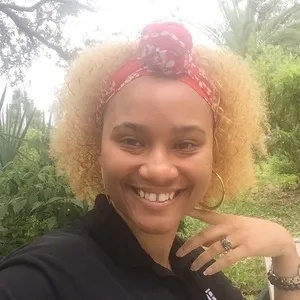Kwanzaa is a holiday celebrated by African-Americans, which celebrates family, community, and culture. Before learning about the holiday, the only time I’d see Kwanzaa celebrated was on TV. I don’t know anyone close to me who celebrates it or who’s had any kind of experience with it. I take this as a chance to learn about a holiday with origins coming from my African roots that celebrates my blackness.
What is Kwanzaa?
Dr. Maulana, professor of Africana Studies at California State University, started it in 1966. The name “Kwanzaa” derives from the Swahili phrase “matunda ya kwanza,” which means “first fruits.” The holiday is celebrated between December 26th and January 1st.
The Seven Principles
Over the course of the week, participants reflect on “Nguzo Saba” or The Seven Principles:
1. Umoja (unity)—to strive for and maintain unity
2. Kujichagulia (self-determination)—to define, name, create, and speak for ourselves
3. Ujima (collective work and responsibility)—to build and maintain community
4. Ujamaa (cooperative economics)—to build and maintain own businesses and profit together
5. Nia (purpose)—to build and develop our community to restore to traditional greatness
6. Kuumba (creativity)—to make our community more beautiful and beneficial than previous generations
7. Imani (faith)—to believe in our people, parents, teachers, leaders and righteousness and victory of the struggle
Experiencing Kwanzaa
For some people, Kwanzaa is a way of strengthening the bond between Black Americans, Africans, and anyone else who is a descendant of the Diaspora. Celebrating Kwanzaa is a way of expressing being African.
As a Black American, my family never celebrated Kwanzaa. It didn’t feel weird to me at all that we celebrated Christmas instead, Kwanzaa just wasn’t ever discussed. I learned a little about it growing up, but I didn’t really care all that much. It’s great to see someone who took the initiative and wanted to keep our African roots alive in some aspect.
What to Eat
As of late, I’ve become more interested in where the foods I’ve eaten my entire life come from and the history behind them. I enjoy learning about African and Black history and food plays a major part of it. I came across a Peanut Soup and an Apple, Marshmallow, and Yams recipe that I may have to try for myself even after the holiday season is over. I’m not the best cook in the world, but I’m pretty sure I won’t burn my apartment down after making these two simple meals.
The traditional Kwanzaa meals are different from what I’m used to eating on Christmas. On the last day of the holiday, the Karamu feast occurs. Karamu is an entire production from beginning to end. At the Karamu feast, not only are there a number of foods that originated from Africa, like black eyed peas and okra, but you’ll have the chance to grub on fried chicken and collard greens.


